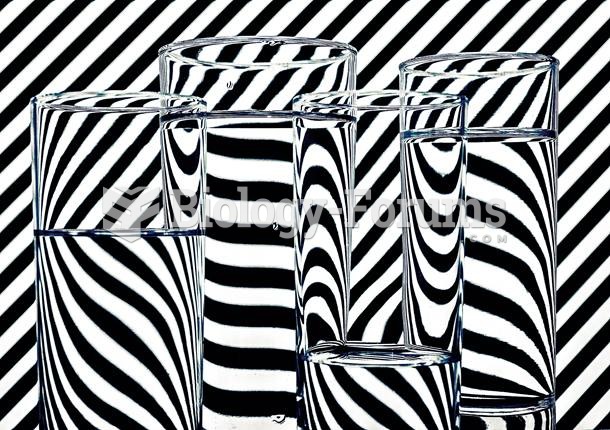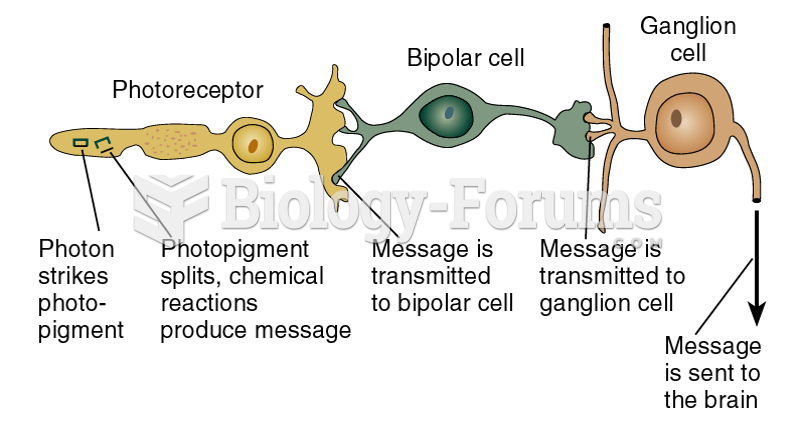|
|
|
For high blood pressure (hypertension), a new class of drug, called a vasopeptidase blocker (inhibitor), has been developed. It decreases blood pressure by simultaneously dilating the peripheral arteries and increasing the body's loss of salt.
Vaccines prevent between 2.5 and 4 million deaths every year.
Cancer has been around as long as humankind, but only in the second half of the twentieth century did the number of cancer cases explode.
The calories found in one piece of cherry cheesecake could light a 60-watt light bulb for 1.5 hours.
About 60% of newborn infants in the United States are jaundiced; that is, they look yellow. Kernicterus is a form of brain damage caused by excessive jaundice. When babies begin to be affected by excessive jaundice and begin to have brain damage, they become excessively lethargic.







